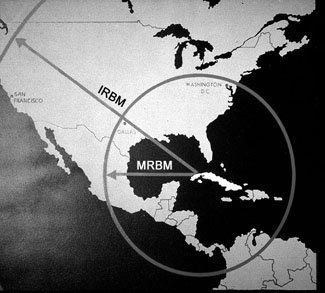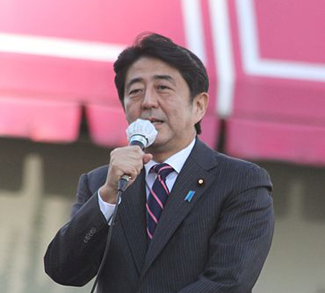FORECAST
In a major departure from the Bush administration, President Obama has initiated a new geopolitical strategy in central Asia designed to drastically change the status quo in Afghanistan.
In admitting that the United States is losing the war in Afghanistan, a fact long concluded by analysts but never confirmed by high-ranking American officials, in an interview yesterday Obama referred to the U.S. strategy in Iraq of allying with “Islamic fundamentalists” as indicative of comparable opportunities vis-à-vis the U.S. war against Afghanistan. The less-than-subtle implication is that the U.S. will attempt to mirror the Iraqi strategy in Afghanistan by allying with ‘moderate’, malleable elements within the Taliban and allied anti-American militant groups operating in and around the central Asian country.
Obama’s call for a new strategy in Afghanistan, including allying with elements within the Taliban and allied groups, comes amid a flurry of U.S. diplomatic activity in Asia, focusing on America’s ongoing military operations therein:
- U.S. envoys recently visiting Syria after high-ranking members of Obama’s Democratic Party in Congress began signaling American desire for rapprochement between the two rivals for near-east geopolitical influence
- U.S. initiatives, commencing with Vice-President Joe Biden, to re-engage with Russia and tacitly retreat on Bush’s missile-defense plan in exchange for increased cooperation vis-à-vis Iran and Afghanistan
- Secretary of State Hillary Clinton unilaterally announcing last week that the U.S. will invite Iran to a regional conference on the security situation in Afghanistan, an invitation that appears to be unconditional, contrary to Bush’s vision.
- Pentagon officials asking China to assist in NATO’s war against Afghanistan
Recently, Pakistan’s government not only entered into negotiations with the Taliban and allied militant groups in Pakistan, but concluded a ceasefire in one of Pakistan’s districts. Ironically, the ceasefire was widely criticized by the U.S. government during Obama’s tenure.
Yet this is not the first time a strategy involving negotiating with the Taliban has been proposed. In 2007, the British held secret negotiations with the Taliban in Helmand province before the British agents involved were unceremoniously expelled by Afghan president Hamid Karzai, perhaps at the behest of the Bush administration, after the contacts became public.
Nonetheless, Karzai’s own government is widely known to have conducted not-so-secret negotiations with Taliban representatives in Saudi Arabia, negotiations that revealed that the Taliban are willing to divorce from any alliance with Osama bin Laden. Presumably, this fault-line between the Taliban and al-Qaeda will be critical to the U.S.’ bargaining position in any future negotiations with the Taliban.
Critics worry that the Obama administration, in negotiating with Syria, Iran, Russia and China will inexorably alter the geopolitical balance of power in Asia. In particular, the unilateral and unconditional invitation to reengage with Iran, just as American military officials were announcing their belief that Iran has enough nuclear material to begin building a nuclear weapon, is assumed by some, especially in Israel, as a tacit acceptance within the Obama administration that a nuclear-armed Iran is essentially a fait accompli.
Notwithstanding Obama’s overtures for diplomacy, the new American geopolitical strategy in Asia is not by preference, but by necessity.
The American global empire is not only waning, but, with the dramatic implosion of the world economy, seriously teetering on the brink of collapse, a sudden collapse eerily reminiscence to the economic stressors that felled the Soviet empire two decades ago.
The American empire simply no longer has the economic resources to maintain its hegemonic ambitions in Asia. Every dollar spent on the multitude of U.S. military commitments in Asia only further hastens impeding domestic collapse.
Thus, the new Obama geopolitical strategy in Asia is an attempt by the U.S. government to forestall domestic collapse by relieving their imploding economy of unsustainable international military burdens and realigning the geopolitical map in Asia while the U.S. still has capacity to do so.
SUMMARY OF EVENTS: March 2 – 9, 2009
NORTH AMERICA
Mexico
Hundreds of heavily armed soldiers fanned out across Mexico’s bloodiest drug war city on Tuesday, trying to prevent a collapse in law and order just south of the U.S. border.
Mexican President Felipe Calderon hit back at accusations his government is failing in the fight against violent drug cartels, saying that corruption in the United States is also to blame.
United States
The Obama administration threw open the curtain on years of Bush-era secrets Monday, revealing anti-terror memos that claimed exceptional search-and-seizure powers and divulging that the CIA destroyed nearly 100 videotapes of interrogations and other treatment of terror suspects.
Even though he has yet to complete his investigation, a federal prosecutor has already signaled that he is unlikely to indict any CIA employees for incinerating 92 secret interrogation tapes that purportedly show suspects being waterboarded.
Top U.S. politicians have reportedly said that Israel is seriously considering taking unilateral military action against Iran.
The CIA destroyed a dozen videotapes of harsh interrogations of terror suspects, according to documents filed Friday in a lawsuit over the government’s treatment of detainees.
WESTERN EUROPE
Britain
Top secret contingency plans have been drawn up to counter the threat posed by a “summer of discontent” in Britain.
EASTERN EUROPE
Georgia
Russia will have a total of 3,800 troops deployed in Abkhazia for the next 49 years, the president of the former Georgian republic said on Friday.
Georgia is revamping its military to boost defence capabilities amid increasing tensions with Russia over two Moscow-backed breakaway regions, its defence minister said Friday.
Russia
Washington has told Moscow that Russian help in resolving Iran’s nuclear program would make its missile shield plans for Europe unnecessary, a Russian daily said on Monday, citing White House sources.
Russia’s president denied on Tuesday media reports claiming that Washington had pledged to drop its Central European missile shield plans if Moscow helped resolve Iran’s controversial nuclear program.
A collision between U.S. and Russian satellites in early February may have been a test of new U.S. technology to intercept and destroy satellites rather than an accident, a Russian military expert has said.
Russian Prime Minister Vladimir Putin warned Thursday of the risk of a new gas crisis with Ukraine and Europe, saying he was “extremely worried” about a raid on the Ukrainian state gas company in Kiev.
Ukraine
Ukrainian security service agents in masks and armed with machine guns Wednesday burst into the headquarters of the state gas firm, in a dramatic flaring of tension within the country’s feuding leadership.
EAST ASIA
China
Security forces have surrounded a Tibetan monastery in a tense region of southwest China after monks there demonstrated against Chinese repression, activist groups said Monday.
China announced its latest double-digit rise in defence spending on Wednesday but sought to soothe concerns in Asia and the United States by insisting its expanding military posed no threat.
North Korea
North Korea warned Thursday it might shoot down South Korean commercial airliners flying near its territory during U.S.-South Korean military drills next week, ratcheting up threats against its neighbor.
Cash-strapped North Korean shippers smuggle narcotics and other contraband, but there’s little evidence that the communist state’s rusty merchant fleet transports illicit weapons, a report said Thursday.
SOUTH ASIA
Bangladesh
Bangladesh’s security forces Tuesday arrested a man accused of being the “ring leader” behind a bloody mutiny by troops that has raised fears for the survival of the new civilian government.
Pakistan
Attackers armed with guns and grenades launched a brazen assault on Sri Lanka’s cricket team in Pakistan on Tuesday, killing eight people and wounding seven members of the squad.
Pakistan faced new questions about its security forces Thursday as dramatic footage emerged of the cricket attackers making a leisurely getaway from the scene of their deadly assault.
AFRICA
Guinea-Bissau
Soldiers killed Guinea-Bissau’s President Joao Bernardo “Nino” Vieira on Monday in an apparent revenge attack for the slaying of the army chief of the unstable West African country.
Kenya
A senior United Nations official called Friday for an independent probe into the assassination of two rights activists who had been at the forefront of a campaign against extrajudicial killings.
Sudan
The International Criminal Court (ICC) issued an arrest warrant for Sudanese President Omar Hassan al-Bashir on Wednesday for war crimes in Darfur, a decision that could spark more regional turmoil.
Sudan’s president told thousands of cheering supporters on Thursday an international call for his arrest on war crimes charges was a ploy by western nations set on grabbing the country’s oil.
Manjit Singh is a contributor to Geopoliticalmonitor.com



